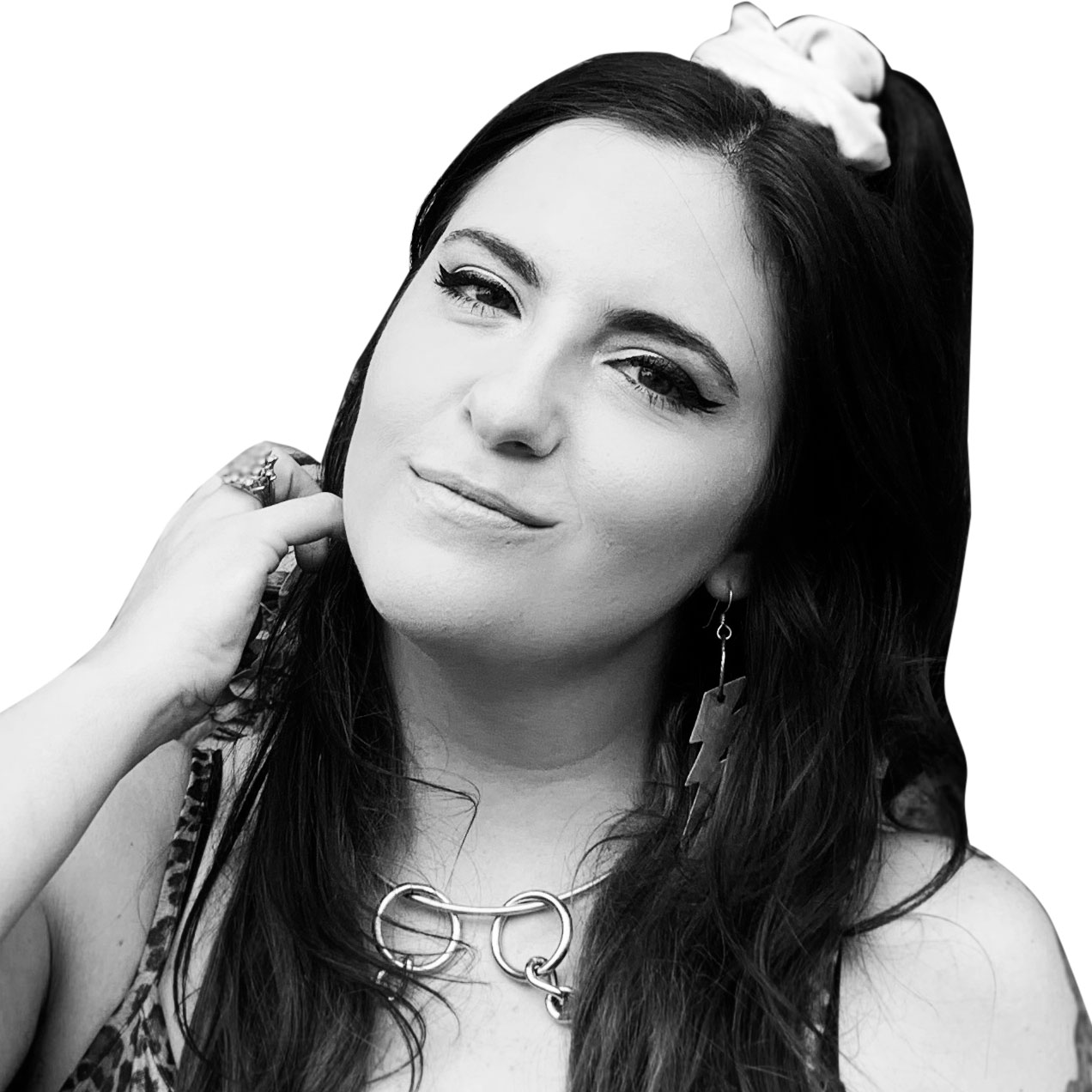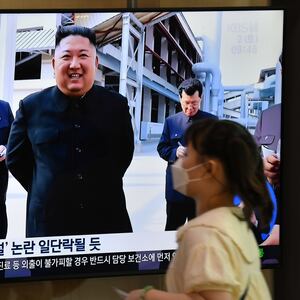SAN JUAN—“I don’t really care about a mask,” 24-year-old Selena, based in Austin, Texas, told The Daily Beast on Friday while walking the streets of Puerto Rico’s capital city.
“It’s about control,” she said, parroting discredited ideas about the historic pandemic that has infected over 4 million Americans somehow being a man-made phenomenon. “The government—they have something bigger going on. The coronavirus is a conspiracy.”
Selena and her travel partner Roger, who both declined to provide their last names, were adamantly anti-mask despite a U.S. COVID-19 death toll of over 146,000. Of course, both had masks visibly at their disposal, but weren’t wearing them properly as they walked the cobblestoned streets of Old San Juan, a major tourist hot spot in the capital city.
ADVERTISEMENT
“Maybe some people did die of coronavirus,” Serena told The Daily Beast. “But a lot of the cases, the numbers, they’re false, and it wasn’t from the coronavirus.”
Roger agreed, despite a widespread expert consensus that if anything, coronavirus deaths are probably being vastly undercounted: “I think a lot of the numbers are made up,” he said.
Whether it’s conspiracy-laden thinking or the frequently repeated complaint that it’s “too hot” to wear a mask, tourists without masks have arrived in droves in Puerto Rico—where they are seen by many locals as an extension of a long legacy of brutal colonialism. Here are hordes of people from outside coming into the island with what residents say is no regard for the health or well-being of the people born and raised here, and even less consciousness of the fact the island’s health-care system—which still hasn’t recovered from Hurricane Maria in 2017—is already stretched thin.
Conversations with residents and workers in San Juan painted a picture not just of tourists going rogue, but of an ugly atmosphere of willful negligence—all while the island’s COVID-19 trend-lines are heading in the wrong direction.
Indeed, COVID-19 cases have spiked hard in Puerto Rico in recent weeks even as strict quarantine measures were—briefly—eased. The island loosened regulations, reopening businesses and extending a local curfew from 7 p.m. to 10 p.m. Officials also rolled out a campaign welcoming back tourists on July 15.
While the San Juan airport was never closed to non-Puerto Rico resident arrivals, the push to reopen tourism was a concerted one. It included hospitality deals supported by major airline price cuts to as low as $11 one way from Newark, New Jersey. Other carriers hover around $60 for a round-trip from Orlando or New York City.
But within 24 hours of the Puerto Rico Tourism Company’s big day, Governor Wanda Vázquez issued an executive order on July 16 mandating alcohol sales island-wide end at 7 p.m. She also imposed new limitations on beaches (deeming them suitable for solo exercise only), and shuttered all non-essential businesses on Sundays. All cruise ship ports remained closed, and curfew stands from 10 p.m. until 5 a.m. until at least July 31.
By Sunday, there were approximately 496 people hospitalized for COVID-19 in Puerto Rico—a record for the island, according to San Juan-based epidemiologist Andrea Sánchez, who has worked with the Puerto Rico Department of Health. The total number of confirmed or suspected cases had reached 15,000, and at least 201 people had died.
Airport safety protocols now require passengers to bring proof of a negative COVID-19 test dated within the past 72 hours. Travelers must also provide information so as to be tracked by the Department of Health via texts, calls, or emails inquiring about any appearance of symptoms, the kind of disease surveillance practiced with some success by Hawaii, if not most mainland states.
That face masks are required in all public areas in Puerto Rico is plainly stated alongside these airport protocols: A fine of up to $5,000 can be slapped on anyone who isn’t wearing a covering on their mouth and nose.
But compliance—especially on the part of mainland U.S. tourists—has been a mess, and a source of sometimes violent tension.
On July 15, a man—residents said he was a U.S. expat living on the island—spat in the face of a Rincón grocery store employee as he argued against using a mask. In a video circulating online, the man said a security guard retaliated by hitting him with a golf club. The following day, a woman was reportedly physically struck after refusing to wear a mask in La Perla, the historic neighborhood that runs alongside Old San Juan, which has become a tourist destination since the 2017 video for Justin Bieber’s remix of Luis Fonsi and Daddy Yankee’s runaway hit “Despacito” was filmed there.
A few weeks ago, a group of women visiting San Juan’s biggest mall allegedly retaliated against a Zara employee’s request that they wear masks by damaging at least $2,000 in merchandise.
A dancer at an Isla Verde strip club and bar told The Daily Beast she’s encountered wild hostility from tourists who don’t want to wear masks. Clients are allowed to touch her, the 24-year-old, who asked to remain anonymous for fear of professional retaliation, explained. But the club rules state all patrons must wear a mask.
“It sucks because I’m saying it nicely, but they just think that I'm a bitch and they just give the money to some other girl that's letting them touch her without a mask,” she said.
It doesn’t help that club security was not enforcing the mask rule, she added. “[He says] we can’t force them to wear masks. I see the bouncer then, and the bouncer looks at the manager and is like, ‘Oh, we can't let a dollar go to waste.’”
The woman has no authority to kick out patrons, she noted: “Plus, they have money in their hands, and I need it.”
Many Puerto Rican workers, like those elsewhere in the country and the world, are faced with choosing to go back to their jobs or better ensuring their safety by staying at home.
“[The government] is not giving us the help we need,” said Nayhomy, an 18-year-old hostess at a bustling San Juan restaurant and wine bar. She and her coworker Melanie, 23, both asked to use first names only so as to avoid any potential repercussions at their workplace.
“I’m here because I haven’t gotten unemployment, and it was necessary—I had to start to work,” Nayhomy said. “But if I could be at home protecting myself without having to deal with this, I’d be much happier, obviously.”
Working together on Thursday night, the pair said many tourists were irritated by the mandatory touchless temperature scan and hand sanitation policy.
“They have attitudes when they get here,” Melanie explained. “One said she was going to ‘die of retardation’ for taking her temperature. Another complained about the sanitizer: They said, ‘Ew, what is that?’”
Over in Old San Juan, Daryanie Arreaga Morales, a 20-year-old server at a pizzeria, said some customers argue with her, while others simply leave when she insists they wear a mask, as per the multiple signs posted out front.
“At the door we also have a sign that says please wait to be attended,” she said. “But people don’t read. They enter the restaurant as if everything’s normal.”
Arreaga Morales will even offer masks from the employees’ own supply. Not everyone abides.
“It’s for their health, and it’s also for our health too, because we’re exposing ourselves. We need to work, we need the money,” she told The Daily Beast. “I’ve worn a mask for more than 12 hours at a time at work. And I don’t complain. But you get angry about using it for a few minutes?”
Nina Lorenzo, a 34-year-old resident of the historic neighborhood, said that shouting to tourists to please wear their masks, reminding them that they could incur a fine, doesn’t help: “They just laugh it off, like, ‘Who’s going to fine me?’” A representative for the Puerto Rico Department of Health did not respond to a request for comment on current travel regulations.
On Saturday, a caravan protest organized by Puerto Rico’s Socialist Workers Movement aimed to shut down the San Juan airport as a statement against ongoing tourism and the capitalist colonialism the group says is putting people in Puerto Rico at risk. One of the group’s leaders was arrested by Puerto Rico police.
Because the island is a territory of the United States, Puerto Rico cannot formally shut down or limit flights at the Luis Muñoz Marín Airport on its own accord. Only the Federal Aviation Administration can make that call—another reminder to locals of the bind they find themselves in during a global health crisis.
“What we’re doing now is saying that we’re not ready for you to come here,” said Sánchez, the epidemiologist. “Puerto Rico is seeing a rise in cases…. It’s not a safe place to vacation.”







